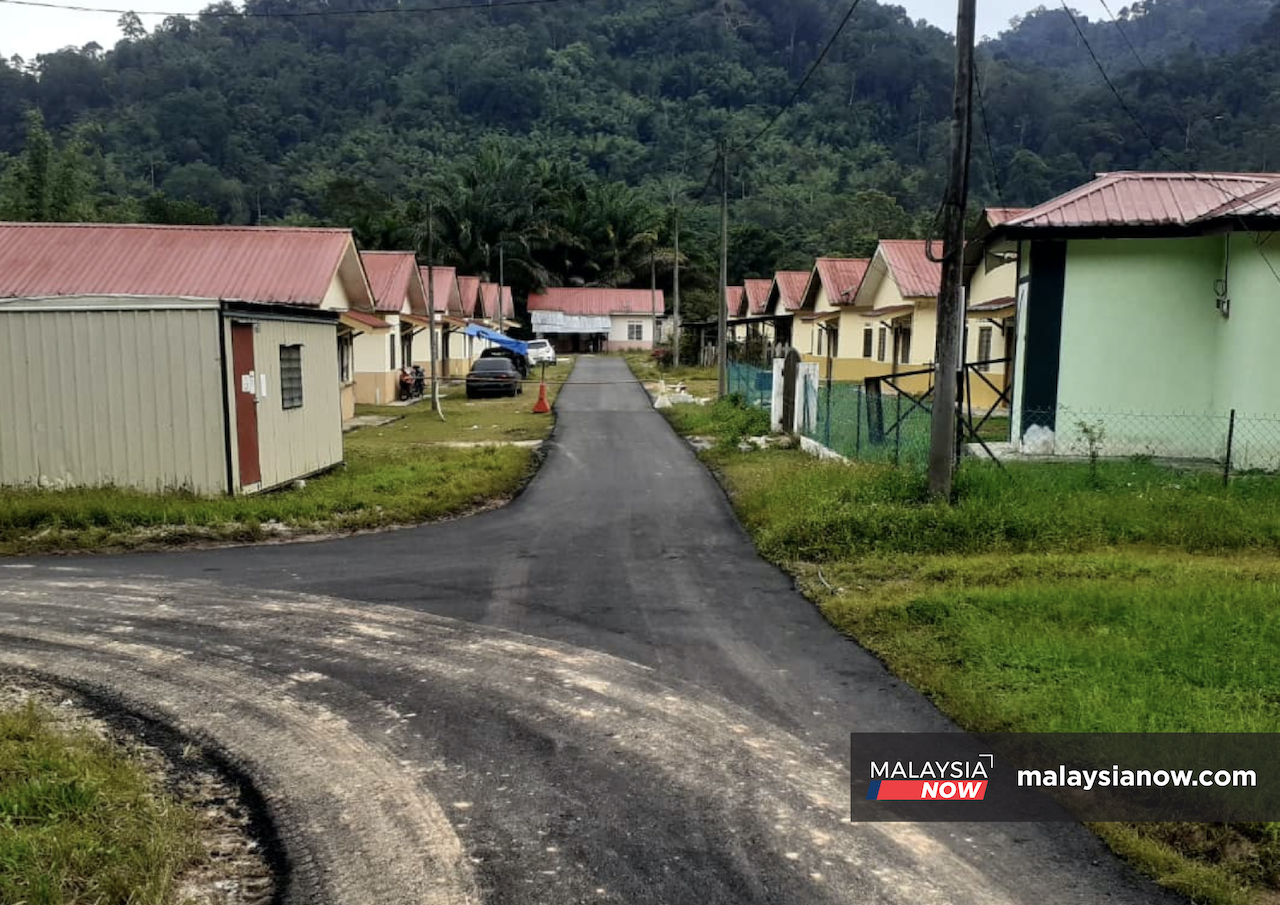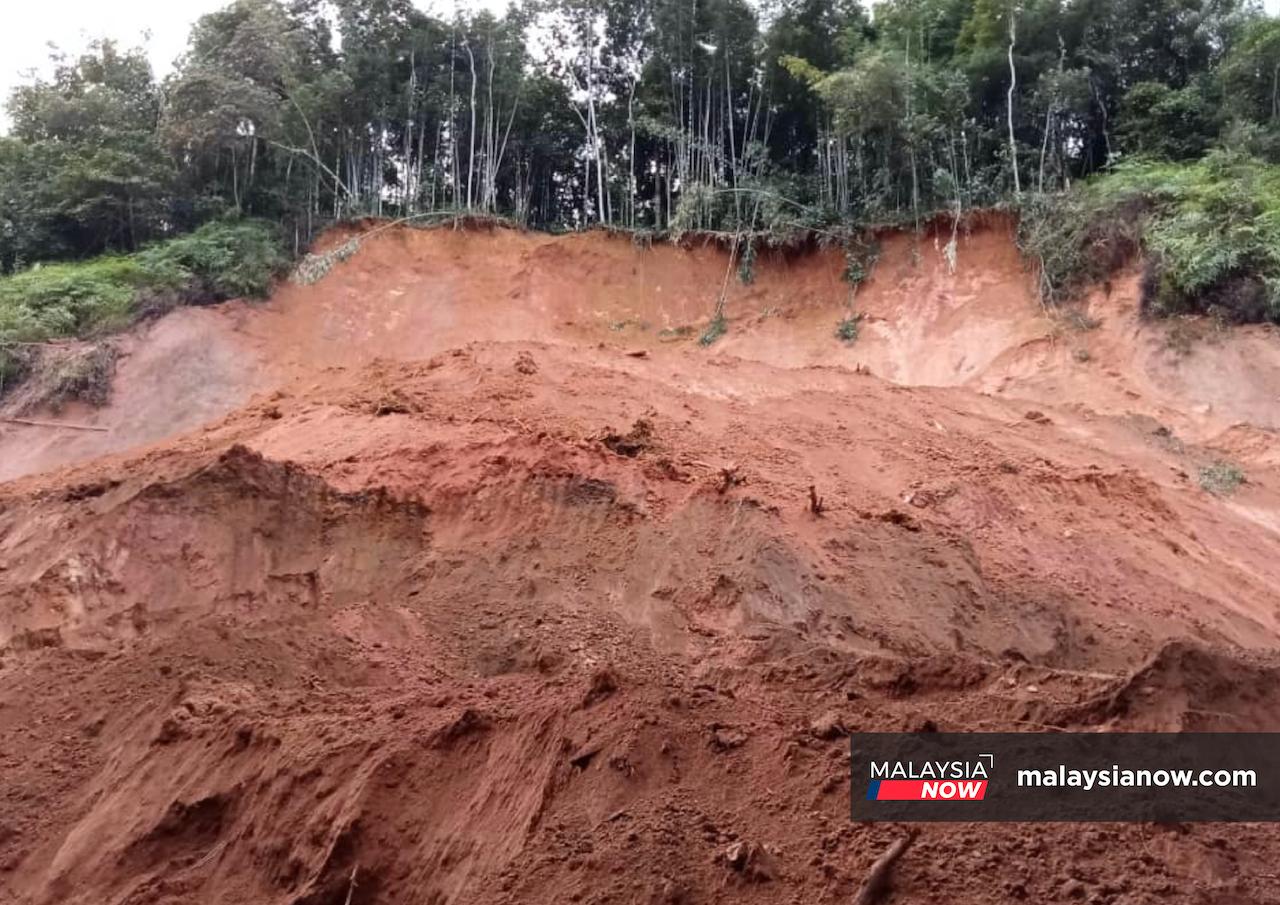Lives and livelihoods at stake amid Camerons landslides
Villagers fear that the increasing frequency of landslides in the area will soon have a direct effect on their lives.
Just In
Residents in Cameron Highlands and the surrounding area have voiced concern over the loss of lives and livelihoods alike in the recent landslide which killed two people at Simpang Pulai on Dec 2.
Ismail Baloh, the tok batin or leader of Kampung Pawong, said the landslide had affected the Orang Asli villagers who lived just 2km away from the site.
“Actually, I wanted to go to my office in Batu Gajah that day,” he told MalaysiaNow.
“When I left my home, I saw two fire and rescue vehicles. It took me a few minutes to realise that a landslide had occurred.”
Two vehicles were buried in the mud – a lorry and a Toyota Vellfire. Both drivers were killed.
Ismail said the villagers were worried because such incidents were happening closer and closer to their settlement.

While landslides are nothing new in Cameron Highlands, they had in the past occurred further away, at least 4km from the village.
Over the past few years, though, the village which is home to about 29 families has experienced a number of landslides in the settlement itself.
“We are worried here because this area has many slopes. Any project that is carried out brings risks for the Orang Asli,” Ismail said.
Personal safety aside, the villagers are also concerned about their livelihoods.
Ismail said this is especially the case for the young Orang Asli, whose incomes hung in the balance when the road leading into Cameron Highlands was closed for repair work.
“They earn a living up there in Camerons,” he said. “They go back and forth from the village each day. When the road is closed, their daily wages are also affected.”
A second landslide was reported in Brinchang several days after the Simpang Pulai incident. This time, another two vehicles were damaged.
Muhammad Azmir Abdul Rahman who runs a homestay in Tanah Rata received a number of cancellations after that.
“When we hear that a landslide has happened, we pray that none of our guests decides to cancel their reservation because everyone is in the recovery phase,” he said to MalaysiaNow.
“I managed to persuade some of them to keep their bookings or at least to reschedule their trips instead of cancelling. A number of those reservations involved a lot of houses,” he added.

He and the other homestay owners understand their guests’ concern and do their best to inform them of alternative ways to the area that do not require them to pass through Simpang Pulai.
Azmir said other landslides in the past were not too serious, and the affected roads would reopen after a few hours.
But this landslide has left many visitors afraid as two people had lost their lives.
Meor Razak Meor Abdul Rahman of environmental group Sahabat Alam Malaysia said soil movements occur naturally on hills when rainfall is high or when influenced by earthworks for agricultural purposes.
“The geophysical characteristics of hilly areas make them sensitive to any activity involving changes to the existing soil structure, which is easily eroded,” he said.
“Significant soil conversion activities leave the surface exposed to runoff and erosion during heavy rain, which can lead to mud floods.”
In 2018, Perak ruler Sultan Nazrin Shah had decreed a halt to all activities in the hilly areas bordering Cameron Highlands.
But Meor said his decree did not appear to be heeded.
“Even after that, earthworks for large-scale agricultural purposes continued in nearby areas to the point that they disturbed the lives of the Orang Asli communities there.”
Back in the village, Ismail prays that no further tragedies occur.
He hopes that the authorities will keep a close watch on all land exploration and development projects, and enforce the law.
“Those in authority should not make light of what God has given us,” he said.
“Do not misuse what is bestowed on us, and be grateful for what we have. That is enough.”
Subscribe to our newsletter
To be updated with all the latest news and analyses daily.
